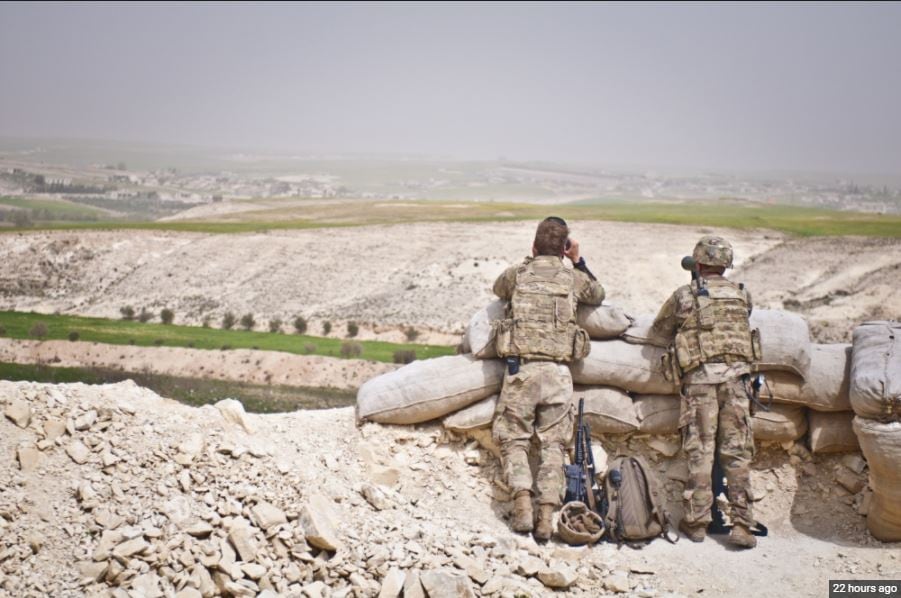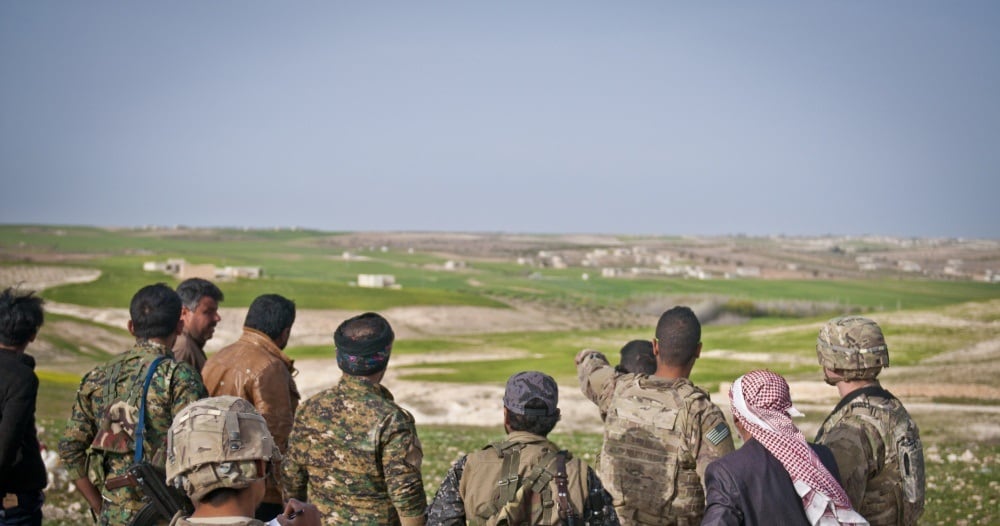Operation Inherent Resolve recently posted pictures of U.S. soldiers near Manbij, Syria, conducting what the captions called “presence patrols.”
But after Military Times reached out to U.S. officials, the photos were quickly removed from DVIDs, the Defense Department’s media distribution website.
“I have pulled those photos and cutlines for review and correction. I will release them for reposting at a future time to be determined,” Col. Thomas Veale, public affairs director for OIR, told Military Times.
Additionally, Military Times was told by officials that the forces were only “conducting security within their area of operations” and the term “presence patrol" does not accurately describe what’s happening in the photos.
But according to Jennifer Cafarella, a senior intelligence planner at the Institute for the Study of War, Inherent Resolve is obscuring the purpose of these patrols by using ambiguous language.
“They’re trying to use terminology to manage the Turkish reaction,” she said. “The intended effect — regardless of the framing — is to deter Turkey from attacking.”

A big part of deterrence is ensuring a message has clarity, and by obscuring the point of a patrol, U.S. officials might not be ensuring their Turkish counterparts understand the point, she said. In this way, OIR’s shift in language could be poor messaging.
Another possibility, though, is that U.S. officials are changing their position on Manbij.
“Either they are failing at deterring or they are deciding to go with a different message,” Cafarella said.

Coalition forces have been in the vicinity of Manbij since around August 2016, when they supported locals in the liberation of the area from the Islamic State.
“We have maintained a relationship with the Manbij Military Council (MMC), which was created to defend Manbij from Daesh,” an OIR official said, using the Arabic term for ISIS.
In a statement last week, Inherent Resolve officials called the MMC a “mixed Arab and Kurdish council.”
Now, though, statements from Inherent Resolve describe the MMC as mostly Arab.
“The MMC is a primarily Arab force made up of Manbij locals,” the new statement reads.
It also notes that “the predominantly Arab council has maintained security and stability.”
The difference in ethnic makeup may seem innocuous to most Americans, but it is a linchpin in the dispute Turkey is lobbying the United States over.
Turkey began a military offensive over its border into the Syrian city of Afrin in order to eliminate Kurdish fighters it considers terrorists — and Turkish President Recep Tayyip Erdogan has threatened that the operation will soon extend to Manbij.
Turkey considers the Kurdish Peoples’ Protection Units, or YPG, to be linked to the Kurdistan Workers' Party, or PKK, which is considered a terror group by both the United States and Turkey. However, the YPG has been an key part of the U.S.-backed Syrian Democratic Forces in their fight against ISIS.

Now, it appears that U.S. officials are attempting to ”de-emphasize the level of YPG involvement in military and governing structures in Manbij in order to portray the situation as predominantly Arab and to portray the Turks as the aggressor in any possible endeavor,” Cafarrella said.
Still, the relationship between the YPG and U.S. forces is actually unclear, she explained. In fact, it seems the United States has very little leverage over the YPG, as evidenced by their failure to prevent Kurdish units from heading to fight in Afrin.
In the end, Cafarrella said that the “United States is correct in that most of the Manbij Military Council in terms of volume is Arab, but they are subordinate to the YPG chain of command, or at a minimum are subordinate to YPG leadership.”
She added that there have been recent protests in the Manbij area by Arabs against the MMC, “for abuses against the Arab population.”
“Because that whole structure is still dominated by the YPG, its ideology and its goals,” she said.
Kyle Rempfer was an editor and reporter who has covered combat operations, criminal cases, foreign military assistance and training accidents. Before entering journalism, Kyle served in U.S. Air Force Special Tactics and deployed in 2014 to Paktika Province, Afghanistan, and Baghdad, Iraq.





